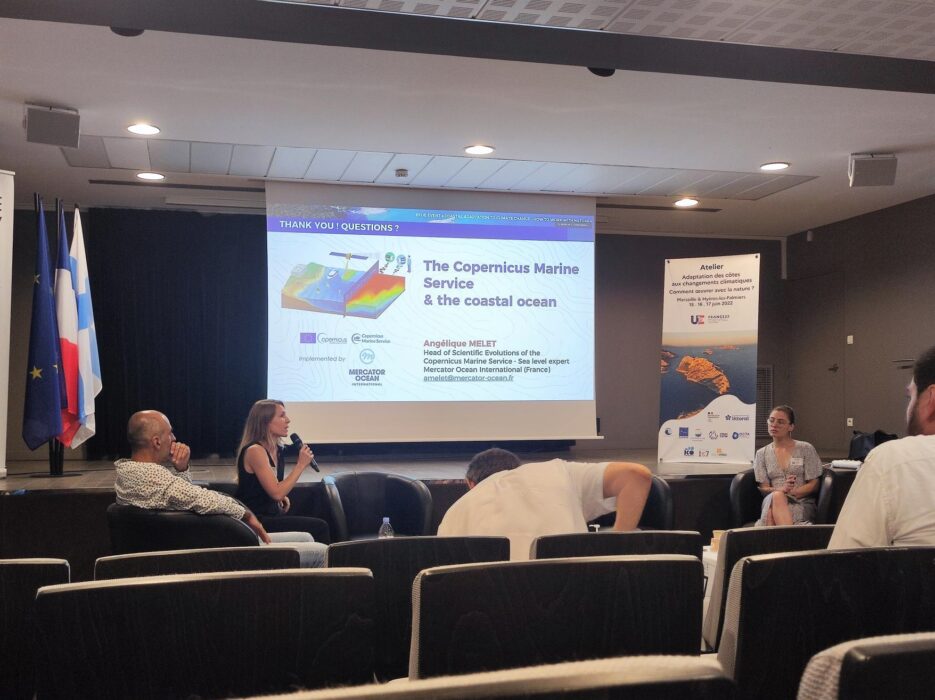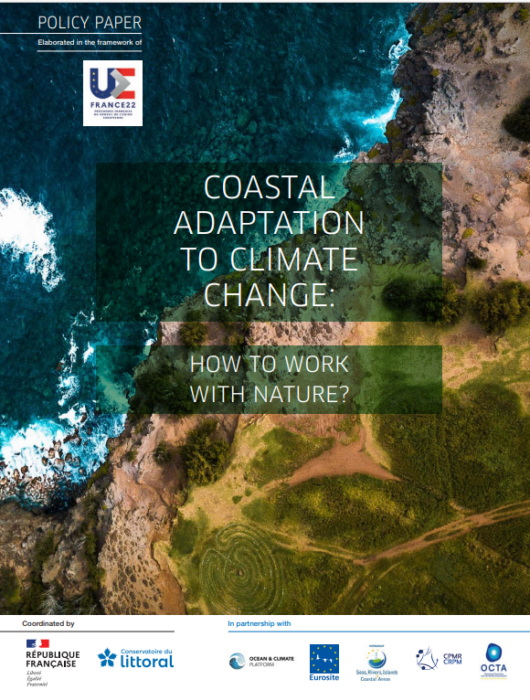
On June 16, Angelique Melet, Head of Scientific Evolution of Copernicus Marine Service at Mercator Ocean International, participated in the International Workshop on Coastal Adaptation to Climate Change. Gathering more than thirty European and Mediterranean institutions, the workshop was organised by the Conservatoire du Littoral, in the framework of the French Presidency of the Council of the European Union (FPEU).
Through exchanges before and jointly during the event, stakeholders have worked on the co-production of a Policy Paper providing recommendations and strategies for adapting coastal areas to climate change.
This Policy Paper is being launched at the beginning of the COP 27, reminding us that, adapting coastal areas to climate change should be a priority. Whether built or unbuilt, coastal areas are increasingly sensitive to the impacts of climate change: sea level rise, erosion, soil salinization, intensification of storms and flooding, etc. The direct consequences are already visible, both for coastal ecosystems and for the millions of people who live or work there. In the face of the emergency, adaptation strategies in coastal areas must be developed over the long term with populations and local stakeholders and implemented with a view to making coastal areas more resilient. Effective and sustainable adaptation cannot be achieved without rational management and use of nature combining the preservation of natural areas with the protection of socioeconomic and human issues.

Main recommendations
These recommendations are summarised and divided around several axes:
- Adapting the development of coastal areas: by developing legal and financial tools to facilitate the removal of infrastructure and assets at risk, by implementing adaptation measures at appropriate geographical scales, etc.
- Preserving undeveloped areas in the coastal zone and their services: by stopping the loss of undeveloped areas – natural, non-intensive agricultural, forest-, by implementing ecological restoration actions…
- Providing the tools and financial means for coastal adaptation: by strengthening the financing of Nature-based Solutions, by setting up financial incentives involving public authorities, banks and insurance companies, etc.
- Developing scientific knowledge: by strengthening data collection on the impacts of climate change as well as on adaptation solutions, by promoting the sharing and accessibility of these data to the widest possible audience, etc.
- Involving civil society by working on the appropriation of territorial projects and social acceptability: by strengthening the integration of civil society in the co-construction of territorial projects and in decision-making…
- Capitalising and cooperating between coastal stakeholders on a European and international scale: by relying on existing networks and platforms or by setting up cooperation projects and sharing experience and know-how, etc.
The Policy Paper is intended to be sent to representatives of the European Union, Member States, coastal regions and cities to serve as a tool to rethink the future of our coastal territories, and moreover to ensure the security, economic development and well-being of the populations living there while safeguarding of ecosystems and island and coastal biodiversity.
